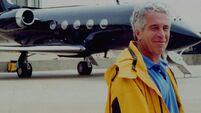Pigeons could carry deadly bird flu, warns expert
The wild birds, already considered a health hazard in urban areas, are capable of being infected and killed by the H5N1 strain, scientists have learned.
To what extent pigeons are able to spread the virus is not known. But an expert yesterday warned if H5N1 was confirmed in British and Irish wild birds, all species should be at risk.














